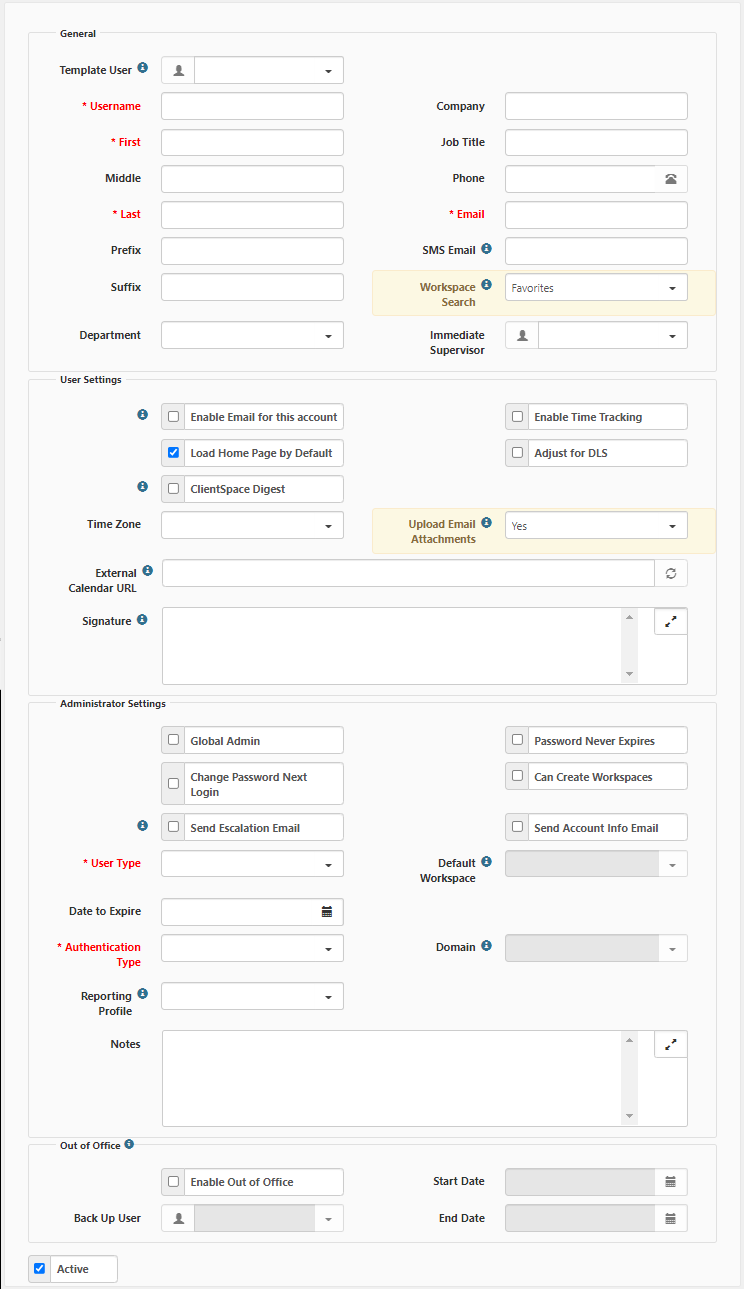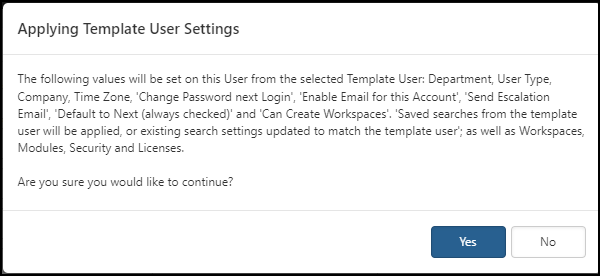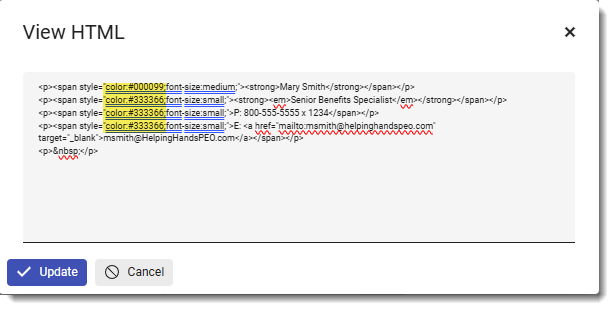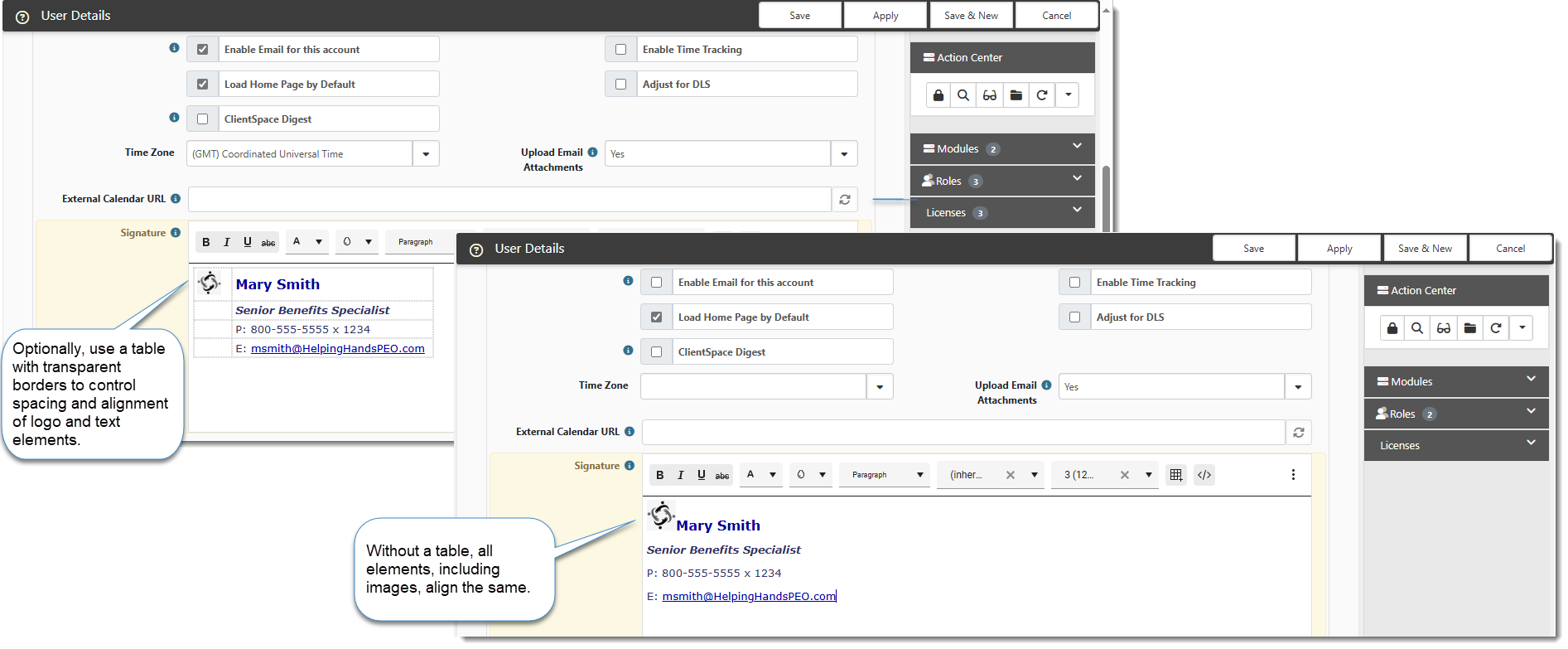All ClientSpace users have a user profile. For some clients, the user profile automatically imports from PrismHR or Salesforce. And administrators can manually add user profiles. The user profile record contains the username that you use to access ClientSpace, along with a few identification fields, such as Name, Department, Job Title, Phone, and Email. Additionally, the user profile has a few administrative and out of office settings.
You can edit your user profile for some demographic information, enable out of office notifications, and add modules to the topmost banner bar. Administrators perform other edits, such as role assignments and managing licenses. Roles control user access (view, add, edit, delete, and admin) to various entities. And licenses determine the available ClientSpace modules.
This topic guides you through adding and editing a user account.
To add or edit a user account:
- Go to System Admin
 > Users.
> Users.
The Users dashboard opens. - To add a user account, click Add.
The User Details form opens. - To edit a user account, highlight the row and click
 (Open) or Edit.
(Open) or Edit.
The User Details form opens. - Complete the form.
|
Fieldset |
Field |
Description |
|---|---|---|
|
General: |
|
|
|
|
Template User (Available in the General fieldset when creating a new user) |
From the list, select a user account to auto-fill values for the account you are adding. The following values are auto-filled from the selected template user:
Additionally, saved searches from the template user will be applied to new user records created from the template user record and to existing user records that have a new template applied. Note: If you select a value in the Template User field, the system displays the Applying Template User Change message. Click Yes to continue and use the template user settings for the current user that you are creating or editing. The following graphic illustrates the Applying Template User Change message. |
|
Username |
Required. |
|
|
Company |
Auto-filled when using a Template User. |
|
|
First, Middle, Last |
Required: First and Last. |
|
|
Prefix, Suffix |
Provide appropriate prefix or suffix to the account. Optional. |
|
|
Job Title |
Type the user's job title. |
|
|
Phone |
Type the user's phone number. You can call the user directly from ClientSpace by clicking the phone icon. |
|
|
|
Required. When you change an Active user to Inactive, the user's email is also inactivated to ensure that system emails are not sent to inactive user accounts. If an account is re-activated, the inactive status is removed from the email address. |
|
|
SMS Email |
Used for Two Factor Authentication Notification. |
|
|
Department |
This field is required for internal user profiles and it is auto-filled when using a Template User. Select a department from the list.
Note:
|
|
|
Workspace Search |
Auto-filled when using a Template User. For Internal users, sets the Search Type for the Workspace Widget. |
|
|
Immediate Supervisor |
Select a user from the list. |
|
|
User Settings: |
|
|
|
|
Enable Email for this account |
Default is enabled. Enables email notifications to external email, such as Gmail or Outlook. |
|
Enable Time Tracking |
When selected, this setting displays the Time Tracker panel on dataforms that allow Time Tracking for this user. SeeAdding Time Tracking to a Dataform.
This setting also enables the Minutes Spent field on the Quick Case form when Time Tracking is also enabled at the Cases dataform level. See Adding a Quick Case. |
|
|
Load Home Page by Default |
Default is enabled (selected). |
|
|
Adjust for DLS |
Adjust the clock for daylight savings time (DLS). |
|
|
ClientSpace Digest |
Select this option for the user to receive a notification for follow-up activities when the system runs the ClientSpace Digest scheduled process. |
|
|
Time Zone |
Select the user's time zone. |
|
|
Upload Email Attachments |
Default is Yes.
Determines if attachments can be uploaded when attaching Activities from the
Email Add-In. |
|
|
External Calendar URL |
Exposes external
calendar events on the ClientSpace calendar. Provide the URL to a shared
calendar. |
|
|
Signature |
Adds a custom signature message to Email Activities. Use the rich text editor toolbar to make customizations according to your branding specifications:
Tips:
Note: You can use the View HTML option to make other changes and apply other custom effects that are not available on the toolbar.
|
|
|
Administrator Settings: |
|
|
|
|
Global Admin |
Select this option to establish the user with admin rights to ClientSpace. Note: If you select External in the User Type field, or if User Type is set as External via template, the system deselects the Global Admin option (if already selected) and locks the option to prohibit setting an external user as a Global Admin user. |
|
Password Never Expires |
Select this option to indicate that the user password never expires. If you select this option for a user, the system disregards the Password Reset setting specified in System Admin > Security > Authentication Settings and the user will not be included when the Expire Passwords scheduled process is executed. If you do not select this option, the system uses the value in the Password Reset password settings to determine when a user password expires. The default value for the Password Never Expires field is unchecked. |
|
|
Change Password Next Login |
Select this option to require the user to change their password on the next login. |
|
|
Can Create Workspaces |
Select this option to allow the user to create workspaces. |
|
|
|
Send Escalation Email |
Enables users to select whether to receive escalation notices for tasks in the system. |
|
Send Account Info Email |
When this field is selected, the user receives an email with their username and login instructions. |
|
|
User Type |
Select Internal to create an internal user or External to create an external user. This field is auto-filled when using a Template User. Note: If you select External in the User Type field, or if User Type is set as External via template, the system deselects the Global Admin option (if already selected) and locks the option to prohibit setting an external user as a Global Admin user. |
|
|
Default Workspace |
Available when User Type = External. Determines the workspace an external user will be directed to after logging in. |
|
|
Date to Expire |
Set a date to expire the user account. |
|
|
Authentication Type |
Auto-filled when using a Template User. |
|
|
|
Domain |
This field is available when Authentication Type = Active Directory. Select an Active Directory Domain for this user. |
|
|
Template User (check box) |
Select this check box to indicate that the current user is a template user that you can use to auto-fill settings when you create or edit other users. |
|
|
Template User (drop-down) (Available in the Administrator Settings fieldset when editing an existing user) |
From the list, select a template user account to auto-fill values for the account you are editing. The following values are auto-filled from the selected template user:
Additionally, saved searches from the template user will be applied, or existing search settings updated to match the template user; as well as Workspaces, Modules, Security and Licenses. Note: If you select a value in the Template User field, the system displays the Applying Template User Change message. Click Yes to continue and use the template user settings for the current user that you are creating or editing. The following graphic illustrates the Applying Template User Change message. |
|
Reporting Profile |
Auto-filled when using a Template User. Used for Business Intelligence reports. See Configuring Security in Business Intelligence Reporting. |
|
|
Notes |
Auto-filled when using a Template User. |
|
|
Out of Office: |
|
|
|
|
Enable Out of Office |
Default is
disabled. When you select this option, the other fields in the fieldset
become available. |
|
Back Up User |
Required when Enable Out of Office is selected. Select the user account to receive notifications on behalf of the primary user while the primary user has the Out of Office settings enabled. Notifications are sent for the time range specified by Start Date and End Date. |
|
|
Start Date |
Required when Enable Out of Office is selected. Select a start date for the out of office notifications. |
|
|
End Date |
Required when Enable Out of Office is selected. Select an end date for the out of office notifications. |
|
|
|
||
|
Active |
Default is Active.
When you change an active user to inactive, the user's email is also inactivated to ensure that system emails are not sent to inactive user accounts. If an account is re-activated, the inactive status is removed from the email address. |
- Click Save.



